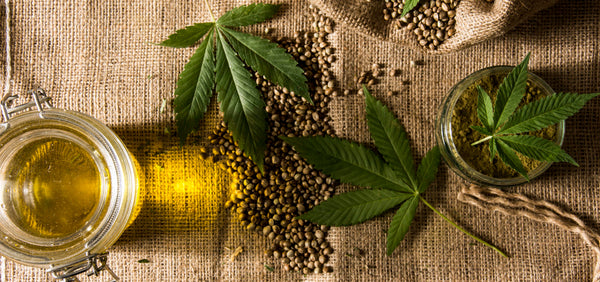Why Hemp Legalization is a Boom for the U.S Economy
If you haven’t heard the good news (where have you been?!) industrial Hemp has been legal in the U.S since December 2018. In less than a year this cash crop has risen to heights even hopeful speculators couldn’t have imagined.
In this guide, we’ll explore just what the 2018 Farm Bill is projected to do for the U.S. economy. Read our 2018 Farm Bill guide to learn more about the bill.
What Is Hemp?
For those who aren’t familiar with this wonder-herb, Hemp is - in fact- one of the oldest domesticated crops known to humans. There are many varieties of the plant, and Hemp (or Industrial Hemp) is a non-psychoactive variety of sativa.
Hemp and the psychoactive herb both come from the same species of plant, but they are genetically different and have different uses. For example, hemp produces very little of the psychoactive compound and has uses ranging from textiles and rope to ever-so-popular supplements.
The Many Uses of Hemp
Hemp is a very versatile plant with many uses and benefits. The Hemp stalk can be used for biofuel and paper products. Hemp fiber can also be used to make clothing, shoes, bags and carpet. Hemp seed can be used to make bread, granola, cereal and milk and also for animal food. The oil from the Hemp seed can be used as a fuel, varnish and a lubricant and more. And the burd can be used for animal bedding, much and insulation.
More recently, however, Hemp-derived oil has taken the stage front and central as the primary use of legalized industrial hemp in the USA. This health supplement has taken the industry by storm, with the market reaching a massive $4.6 billion annually as of 2019. Projections estimate that the cash crop could reach $26.6 billion annually by 2025.

When Was Hemp Legalized in the U.S?
President Trump signed the Farm Bill in December 2018, making industrial Hemp federally legal in the U.S. The bill removed Hemp from the Controlled Substances Act and redefines is as an agricultural commodity. This means that Hemp is no longer classed as a Schedule 1 substance and the DEA will no longer be able to intervene in the commercial trade and use of Hemp products so long as those products and manufacturing processes meet certain standards. Although passed in December 2018, the bill did not go into effect on January 1 2019.
Why Will Hemp Legalization Benefit The U.S Economy?
The legalization of Hemp is set to have a dramatic impact on the U.S economy, something that has investors and state governments very excited, as the bill allows the U.S to compete in the global Hemp market. Over 25,000 products can be produced using Hemp, from construction materials to health supplements.
With literally thousands of uses, the demand for this plant is substantial. According to reports, America already consumes $850m worth of Hemp products, but given it’s previously illegal status in the US, hemp has had to be imported from countries such as Canada, China and France.
Hemp legalization can provide the U.S economy with an economic boost and offer much-needed employment opportunities for those in manufacturing and agriculture. With the industry already into the billions, hopes are high that this crop has only scratched the surface with regards to its full potential.
There are also hopes that this legalization could pave the way to legitimizing a sector of farming that has been operating at the fringes of the law. Hemp farmers can now look forward to the same benefits and protections that other farmers receive, such as crop insurance and business banking services.
Indeed, many farmers are now diversifying to include Hemp crops in their rotations, finding added benefits from growing hemp, such as the need for less watering and their hardy, frost-resistant properties.
The Hemp advocacy group ‘Vote Hemp’ have produced statistics detailing the monumental rise in its popularity. In their 2017 Hemp Crop Report, they stated that 23, 343 acres of hemp were cultivated the previous year across the U.S. In 2018 they reported that this had risen substantially to 77, 000 acres. The passing of the 2018 Farm Bill is sure to create a surge in this number, which in turn sees a decrease in the amount of Hemp imported from countries such as France and China.

Closing Thoughts
One thing is certain, however, this brings with it a certain economic value. According to the research firm Brightfield Group, reported by Bloomberg, the legal market could reach $20 billion by 2022.
Now that farmers can legally cultivate Hemp on U.S soil and can benefit from the protections given to other farmers, there’s no question that the U.S economy will benefit from the legalization of hemp and you’ll be supporting that. Everyone wins!






